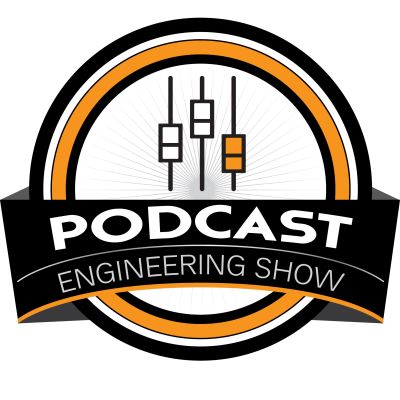This show focuses on the technical production of audio podcasts. Chris Curran chats with podcasters about their audio equipment, software and workflow to help you learn how to produce better sounding podcasts. You’ll also learn solutions to common audio issues as well as plenty of tips and tricks. By listening to this show you will gain a TON of knowledge and skills that will make a HUGE difference in your sound quality _and_ save you time! Subscribe/Follow today and start listening! Your host Chris Curran has a background in podcast production (Forbes, Dun & Bradstreet, J&J, etc) as well as music production (Sarah McLachlan, Jeff Buckley, Foreigner, etc). When he entered podcasting in 2012, he noticed that most podcasters (and producers) do not have a good understanding of fundamental audio engineering concepts, which sabotages the quality of their sound from the very beginning. This show, as well as Podcast Engineering School, helps podcasters and producers reach professional levels of podcast audio production.
https://podcastengineeringschool.com/category/show/
episode 203: Dan LeFebvre, Host of Based on a True Story
My guest is Dan LeFebvre, host of Based on a True Story. Follow him on Twitter.
Some of the topics we discussed:
- sE Electronics V7 microphone (See Bandrew’s review video: sE Electronics V7 Dynamic Mic Review / Test)
- RØDE boom arm
- Acoustic treatments in Dan's office: Moving blankets, carpet, ClearSonic baffles (6’ x 4’ foldable, free-standing panels)
- Zoom R16 Multi-Track Tabletop Recorder
- Squadcast
- iZotope RX 7 -- cleanup, de-reverb, etc.
- Mixcraft DAW
- iZotope Nectar - automatic EQ
- Adobe Audition
- Resampling
- Private RSS feed
- WordPress site RSS plugin
Here is Dan describing his post-production workflow:
After an episode is recorded, I edit it on my primary desktop. I have a folder structure that I've built over the years with templates for each step of the process. This gives me the Mixcraft project templates I need but also gives me backups of each step so I can always go back to any step later if I need to (and I've needed to a few times).
Step 1 is to do generate the WAV files that I'll use to edit. I do this so I'm not editing the original audio that I recorded (again, backup everything) but also because sometimes I get multiple files that I need to cut together. For example, I recently had SquadCast cut out part-way through so I had to use my local DAW recording for a sentence or so when my guest was still talking and he didn't realize SquadCast had dropped me. In this first step, the outcome is a single audio track for my guest and myself.
Step 2 is to do the core of the editing. This starts by pulling each track as its own WAV into iZotope RX to do any cleanup necessary. If I'm using SquadCast, I'll also resample the 44100 kHz WAV file from there to 48000 kHz to better conform to the rest of the audio that I record at 48000 (since I do some video with my podcast). Then, back in Mixcraft, it's to the most time consuming process all podcast editors are familiar with...going through and removing the stutters, excessive "uhs" and "ums" and so on.
Step 3 is to write and record my intro & outro. I do this after editing the episode primarily because I do a "two truths and a lie" segment that requires pulling info from the episode, so it's easier for me to do that after I've edited it and it's still fresh in my mind.
Step 4 is to edit the intro & outro onto the bulk of the episode.
Step 5 is to add the simple intro music, my FX chains and then export a single WAV file for each track. Typically this is one WAV file for me, one for my guest and one for the music track.
Step 6 is to pull those WAV files into a multitrack session in Audition where I do a match loudness. I was excited to see RX 8 has a loudness control module...but I'm not sure it's worth the cost of the upgrade yet just for that hah! So, I do that in Audition. Coming out of Audition, I mix it all down to a single WAV file.
Step 7 is to take that WAV file and resample it from the 48000 kHz that I record in (because I do some video for my podcast) to 44100 kHz to export the final MP3 at 96kbps.
Last, but not least, I have a private RSS feed that I set up to give the episode a listen. Every so often some family members who have access to the RSS feed will help out and give it a listen and let me know if they notice any mistakes. If so, I go back to whatever step is needed to fix it.
Thanks for being a great guest and sharing so much with us, Dan!
Comment below with any questions or comments.
